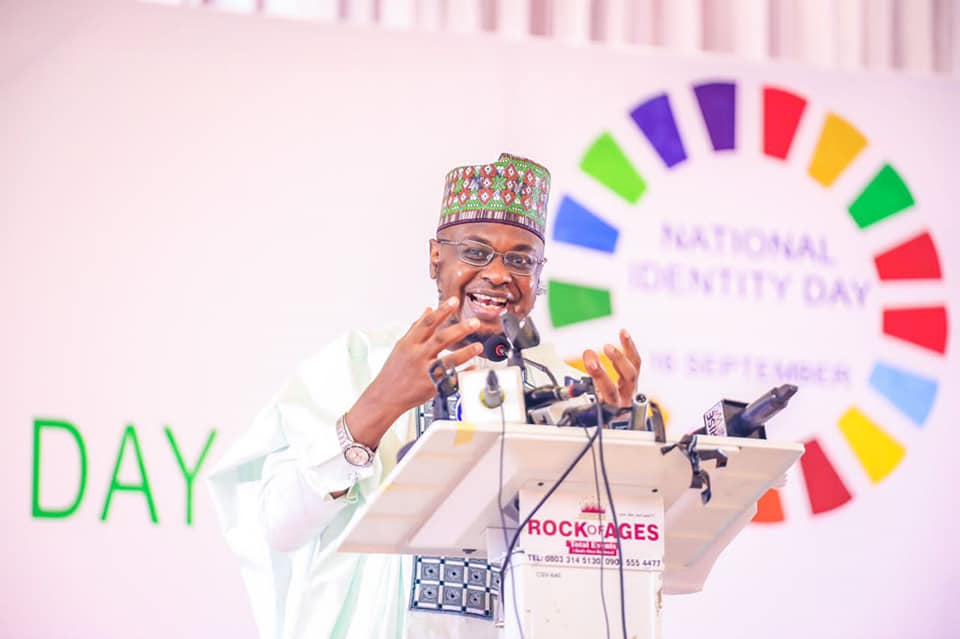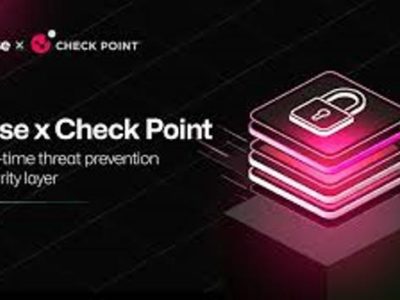The Nigerian government restated its approval of N25 billion for the National Identity Management Commission (NIMC) to undertake Identity Infrastructure upgrade, even as it launched three new solutions for National Identity Number (NIN) enrollment and NIN-SIM [subscriber identity module] verification.
The new solutions leverage technology to make it less cumbersome and even contactless for Nigerians to carry out their NIN enrollment and effect their NIN-SIM registration.
“The novel identity solutions are targeted at easing the enrolment process and bringing to the fore, the ingenuity of Nigerians to address local challenges with ‘glocal’ solutions, and the willingness of this administration to pay attention to and work with all stakeholders interested in promoting the growth of the digital economy and the country at large,” said Minister of Communications and Digital Economy, Prof Isa Ali Ibrahim Pantami, Thursday in Abuja to mark the National Identity Day ceremony organised by the NIMC.
“All 3 innovative solutions being launched today are novel, not just in Nigeria, but also across the African continent and this reflects the commitment of Mr. President to promote indigenous solutions that will also stand out globally,” added Pantami who spoke on behalf of President Muhammadu Buhari.
Nigeria joined the rest of the global community to celebrate the Identity Day, 2021 with the theme for: ‘Identity, a tool for Sustainable Digital Economy and National Security.’
N25b for ID Infrastructure upgrade
He said President Buhari’s commitment to the ID project remained firm.
His words: “As a country, we seek to use efficient ways to deploy national identity trust systems not only to deliver government services in areas such as social welfare, taxes, voting, health administration, security, and education but also to build an indigenous digital economy that will stimulate the private sector and make it thrive.
“With an efficient, secure, accessible, and reliable National Identity Infrastructure we can empower Nigerians to exercise their rights and responsibilities fairly and equitably, thereby driving social inclusion.
“Hence, the unprecedented approval of N25 billion by the Federal Executive Council for upgrade and replacement of the NIMC Identity Infrastructure.”
RELATED
Govt Approves New Condition Of Service, Over 200% Salary Increase For NIMC Staff
Nigerian Government Launched NIMC Mobile App And Improved NIN Slip
Privacy Day: Data Critical To Building Digital Economy, Says NITDA’s Boss
According to the minister, NIN enrolment has now reached 63 million as NIMC continues to scale up its enrolment drive to get every Nigerian and legal resident issued the NIN by setting up more Enrolment and Registration Centres (ERCs) across the country and in the diaspora.
He said: “We have implemented novel policy initiatives that has led to tremendous increase in the registration of persons to over 63 million records and counting on the National Identity Database (NIDB).”
Novel solutions
According to Pantami, to make it easy for citizens to link their NIN to their phone numbers, “we developed a mobile app that allows users to do so without having to physically visit any telecom company. It also enables users to download the improved NIN slips and use mobile IDs as a valid and secure means of identification.”
He said: “the tokenization solution is in line with the efforts of the Federal Government to enhance Data Privacy and Data Security of citizens and legal residents. It prevents verifiers and third parties from storing raw NIN of users. Rather, it provides a time-bound virtual NIN that is specific to the verifying entities.
The minister said the current raw NIN verification approach is being transitioned to the one “that uses tokenised virtual NINs, in line with the Revised National Digital Identity Policy for SIM Card Registration.”
Lastly, the NIMC in order to “circumvent the challenges that resulted from the COVID19 pandemic, developed a contactless Android biometric enrolment system that enables Nigerians and legal residents to obtain NINs after providing their biometrics through a process that is swift and contactless.”
The minister added: “It will also support us in enrolling users that are in remote areas and where there are power and networking constraints.”
































